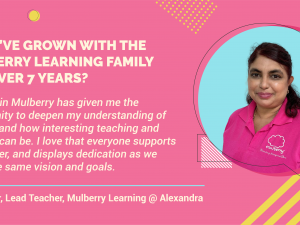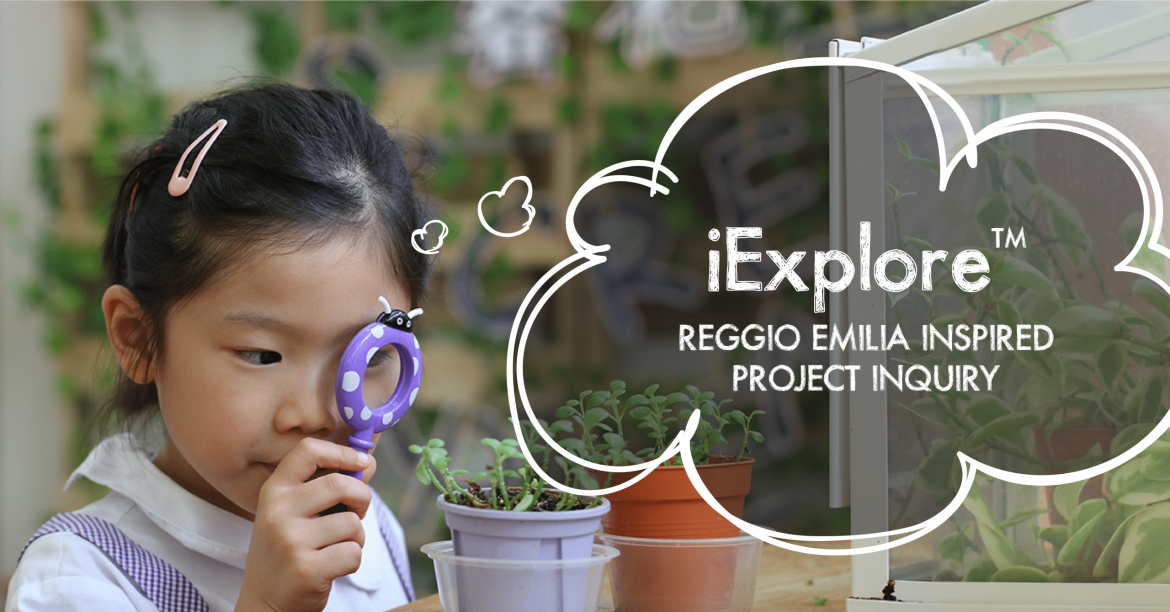

iExplore – Reggio Emilia Inspired Project Inquiry
When your child asks, “Why is there a moon?” Don’t reply with a scientific answer. Ask him instead, “What do you think?” He will begin to understand that you are telling him, “You have your own mind and your own interpretation and your ideas are important to me”.
Then you and he can look for the answers, sharing the wonder, curiosity, pain – everything. It is not the answers that are important, it is the process – that you and he search together.
Professor Carlina Rinaldi, President of Reggio Children – Loris Malaguzzi Centre Foundation
The words above by Professor Carlina captures the essence of the Reggio-inspired approach where children learn best through exploration and discovery. Born eager to learn and generally curious by nature, you cannot keep them from exploring as they try to comprehend the environment and everything else that happens around them. Hence, our job as parents and teachers is to nurture and satiate that curiosity by providing enriching experiences and opportunities for new discoveries.
This love for learning can be nurtured through iExplore, one of the four components of Mulberry Learning’s proprietary curriculum model. It facilitates learning by allowing your child to experience real task management and problem-solving through our unique Reggio-inspired project inquiry process. You might ask, what’s the difference between project work and the Reggio-inspired project inquiry?
Project Work vs Reggio-inspired Project Inquiry
Unlike project work, project inquiry is initiated and led by the children, with the teacher acting as the facilitator and guide. While project work can be completed quickly, project inquiry spans over a longer period of time with the focus being on the active learning process. Important questions are asked and the answers help to shape the children’s understanding of concepts and ideas.
It is also useful to note that in the Reggio-inspired project inquiry environment, project works serve as an “infrastructure” to allow the child to play, experiment, use simulations, address authentic issues, and work with relevant peers and community members in their pursuit of knowledge.
iExplore – Reggio Emilia Inspired Project Inquiry
The project enquiry usually spans 20 weeks and it is split into 3 phases; Phase 1 (Exploration), Phase 2 (Investigation) and Phase 3 (Conclusion). These 3 phases are preceded by the Pre-Phase Planning which determines the project’s intentions.
Pre-Phase Planning (Intentions)
This is the starting point of every project inquiry where the purpose and intentions are determined. Topics for exploration and themes are brainstormed and discussed based on the teacher’s existing knowledge. A list of possible questions the children may ask are also brainstormed at this stage. Provocative stations are set up to stimulate the children’s thoughts, interests, creativity and ideas. Parents will be informed once a theme is decided.
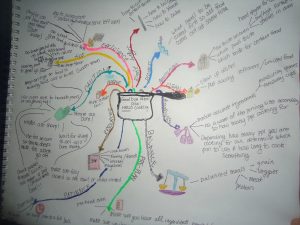
An example of a teacher’s pre-knowledge map.
Phase 1 (Exploration)
Officially the beginning of the project inquiry, this phase begins by determining the children’s pre-knowledge web on the theme or topic. Teachers are constantly listening, observing and documenting the children’s interactions and activities.
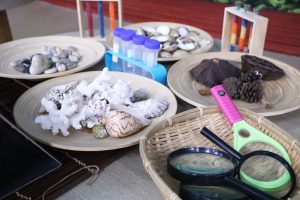
One of the provocative stations at Mulberry Learning.
The following weeks are dedicated to guided activities revolving around the project theme such as open dialogues, music and song, videos, crafts, exploration tasks, storytelling, show & tell, and more. The purpose is to allow the teacher to refine the child’s pre-knowledge map.
Phase 2 (Investigation)
Voting sessions are conducted to determine the final topic of investigation. It is crucial that the topic addresses and fulfils pre-determined learning requirements. The teachers will also review the gathered documentation and plan possible activities such as field trips, experiments, expert visits and other activities for the following weeks.
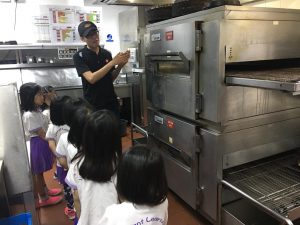
An excursion to Pizza Hut to find out how yummy-licious pizzas are made.
Once the topic of investigation is confirmed, parents are again informed of it. The planned activities will be executed to enable the children to gather additional information. Before and after findings together with other details are thoroughly documented.
Phase 3 (Conclusion)
As the project inquiry nears to completion, the children’s KWL Chart should be ready with all evidence their learning collected and categorized systematically.
The final weeks will be used to determine how they will present all they have learnt and to plan, organize and rehearse for the presentation.
This is the week where the project inquiry journey officially comes to an end. Mummies and daddies are invited to attend a special presentation where they can proudly see the accomplishments of their precious little one.
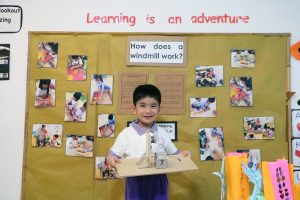
A Mulberrian proudly presenting the fruits of his hardwork.
As an approach that is learner-centric, it serves to promote the child’s interests and views to encourage self-directed learning. Through their project inquiry journey, critical skills in communication, problem-solving, questioning, thinking and social skills are utilized. Positive attributes such as creativity, resourcefulness, resiliency, perseverance and others are instilled and honed. After all, helping children learn to satisfy curiosity through exploration is one of the best skills you’ll ever nurture.
Keen to find out more about Mulberry Learning’s unique proprietary model? Click here to register for a personalized tour now.




